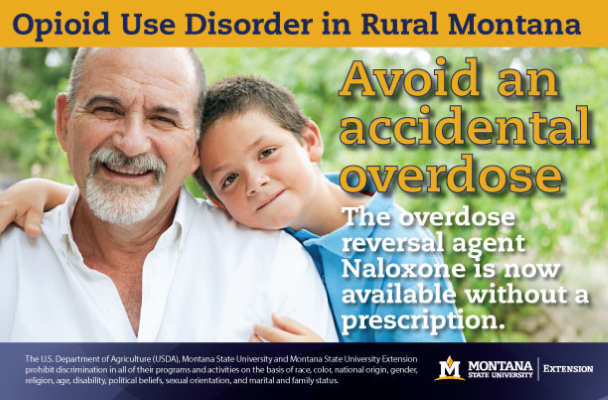Opioid Misuse Prevention
Videos
Medication & Counseling
In order to successfully recover from opioid addiction, a combination of medication
and counseling is recommended. On average, it takes 14 months for the brain to chemically
allow a person to feel good again. Read more about MAT
(Medication Assisted Treatment) https://www.samhsa.gov/

Taper Off of Your Opioid Medication
You could experience pain and other unpleasant symptoms if you suddenly stop taking opioids. Talk to your doctor about gradually reducing your opioids in order to avoid withdrawal symptoms.

Avoid an Accidental Overdose
Many Montanans require long term opioid use for chronic pain management care. Talk to your doctor about how to avoid an accidental opioid overdose, including overdose reversal agents called Naloxone (also known as Narcan®)

When taking opioids, over time the brain adapts by reducing its number of opioid receptors. Brain cells may even produce less of the "feel-good" neurotransmitter, dopamine. The changes that happen in the brain result in tolerance (needing to take more and more for the same effects) and withdrawal (very unpleasant symptoms when the drug is not available). This is why medication assisted treatment is recommended. MAT treatment can relieve stress on the brain so the brain can return to its original state.

43% of Montana's opioid overdose deaths occur in people aged 45 and older.
To find out more about how to prevent opioid overdose click below.
Older Adults and Medication Safety

